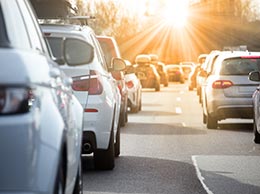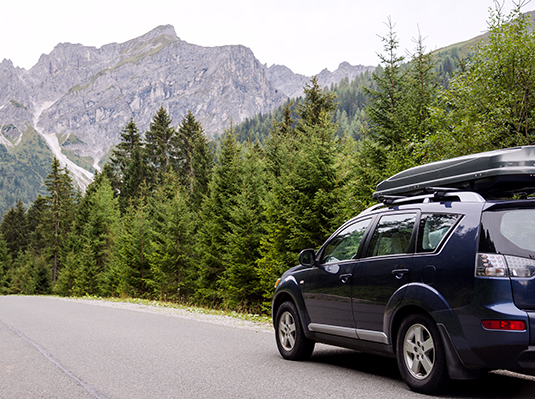
Liability
Liability coverage is the coverage that protects an individual from the financial burden of damages they may cause to others by way of bodily injury or property damage. Basically, if you cause an accident and someone is injured or has property damaged, you are responsible for paying out to that person to make them whole again. Your liability coverage on your auto policy can and should kick in to provide the funds for this. This is the most important coverage on auto policy, so it is very important to be mindful of the ways that liability is covered in relation to a trailer.
There are tons of different types of wheeled machinery that people refer to as trailers, so let’s separate them into two categories:
-
Pull-Behind Trailers
-
These are trailers that do not have an engine and are unable to move under their own power. Since these trailers cannot move on their own, they are automatically covered by the liability coverage on the vehicle that is pulling it. The insurance policy for the trailer will have a different purpose. The policy that includes the trailer will cover:
-
Collision - This is for damage that happens to the trailer from colliding with another object or vehicle. This coverage will pay out to replace or repair the trailer in this instance.
-
Comprehensive - This is for damage that happens from anything other than a collision. Examples of this include things like fire, theft, falling objects, or damage from animals. This coverage will pay out to replace or repair the trailer in this instance.
-
Emergency Expense - This is coverage that pays for travel and lodging in the instance that a trailer that functions as a dwelling is damaged or unusable during a trip. This is very popular with RV owners
-
Roadside Assistance - This is similar to Roadside Assistance on an auto insurance policy. If a trailer owner has this coverage, they can make one phone call to have someone come out and assist with flat tires, dead batteries, locked doors, etc. on the trailer.
-
-
-
Motorized Trailers
-
These trailers will be eligible for the coverages above, but unlike a pull-behind trailer, these units can move by their own power. This being said, insurance policies for a motorized trailer, motor home, Class B, or Class A unit will be required to have its own liability coverage. It is important that we understand and remember that this is not included in your auto insurance.
-
Trailer Use
-
Business: If a trailer is used for business use, it should be insured under a commercial auto or trailer policy.
-
Recreational/Personal Use: Trailers used for camping, hailing, or moving things for personal use can be insured on a normal personal auto or trailer policy.
-
Full Time: Anyone who plans to live in a trailer or RV full time, will need to find a policy with a Full-Timers package. This will account for the extended and frequent use of the trailer, along with things like additional personal property coverage, upgraded roadside assistance, and more extensive liability for incidents that happen in and around the trailer while it is stationary.
The contents of this article are for informational purposes only. You should not act or refrain from acting based on this information without first consulting a Goosehead licensed agent at [email protected]. We disclaim all liability for actions taken or not taken by you based on the contents of this article which is provided "as is." Goosehead makes no representation that this content is error-free.

